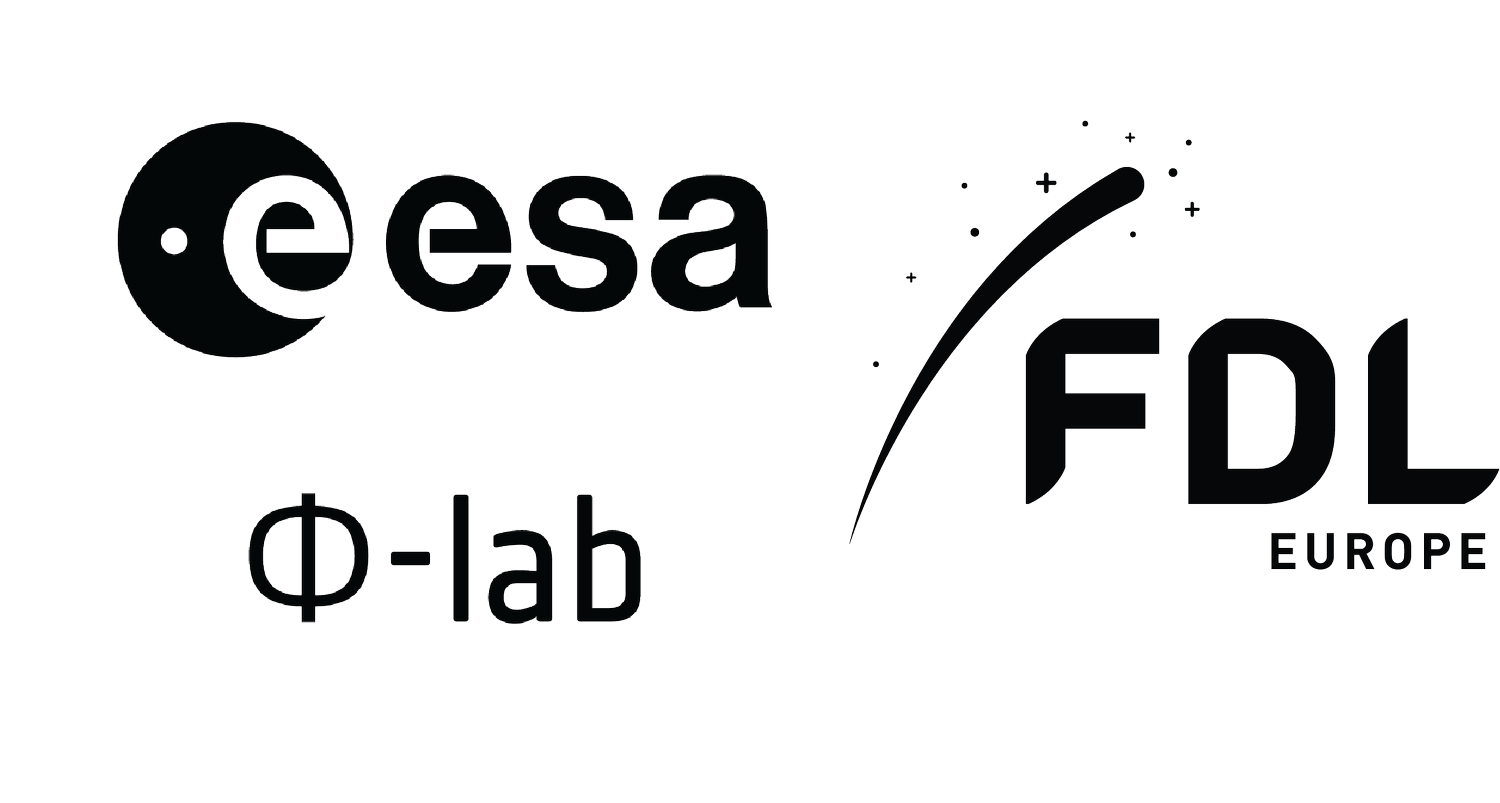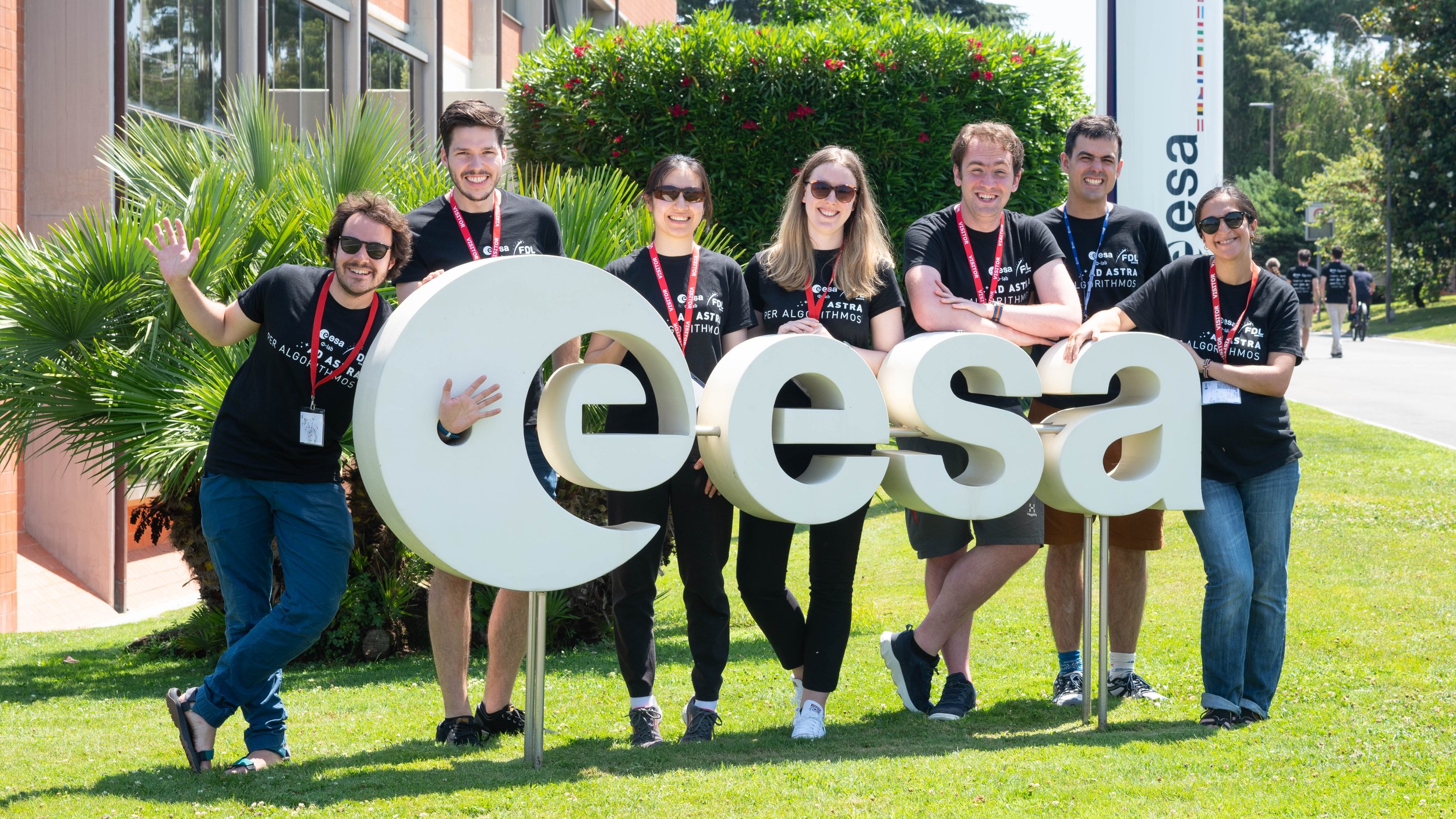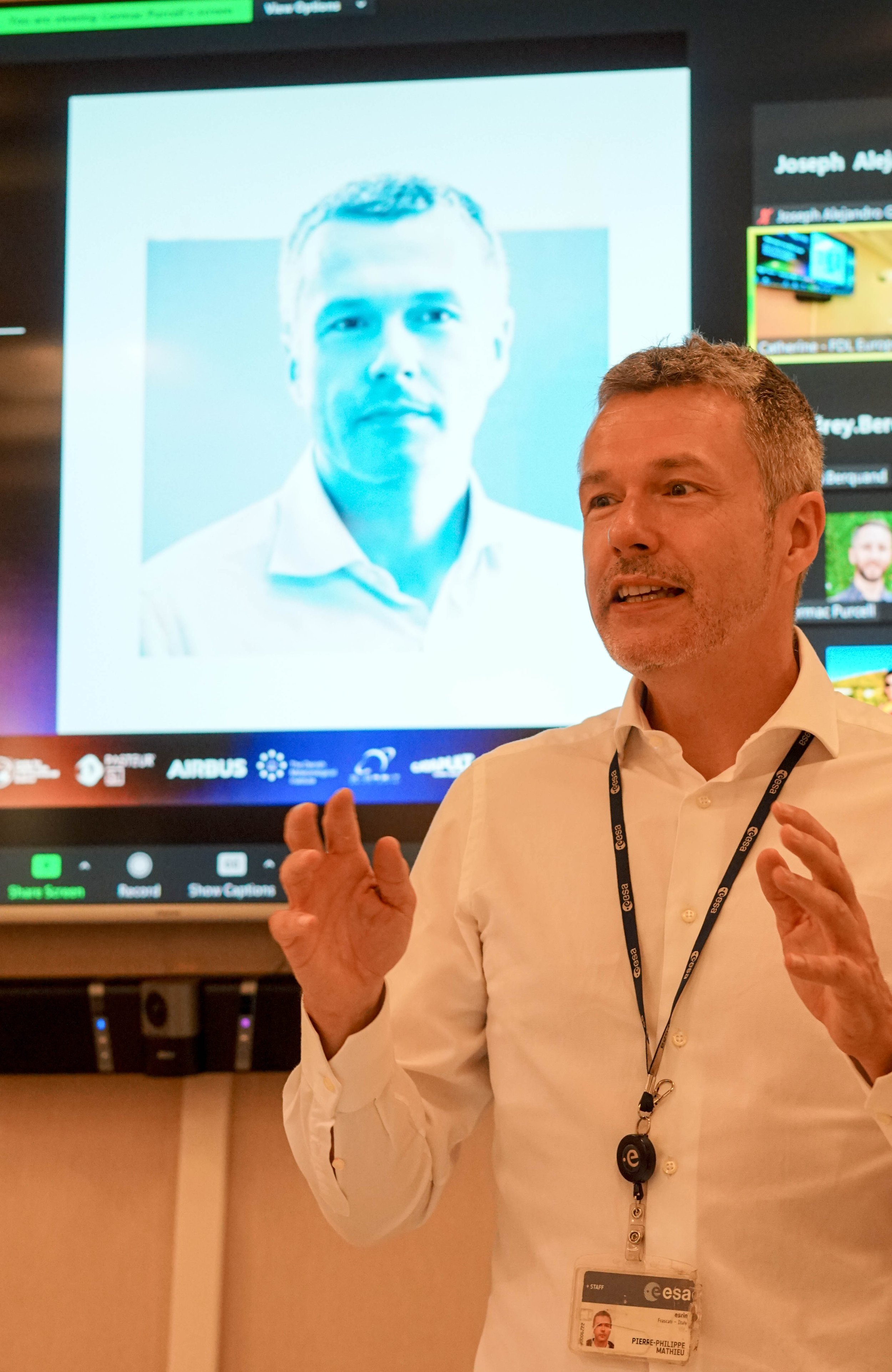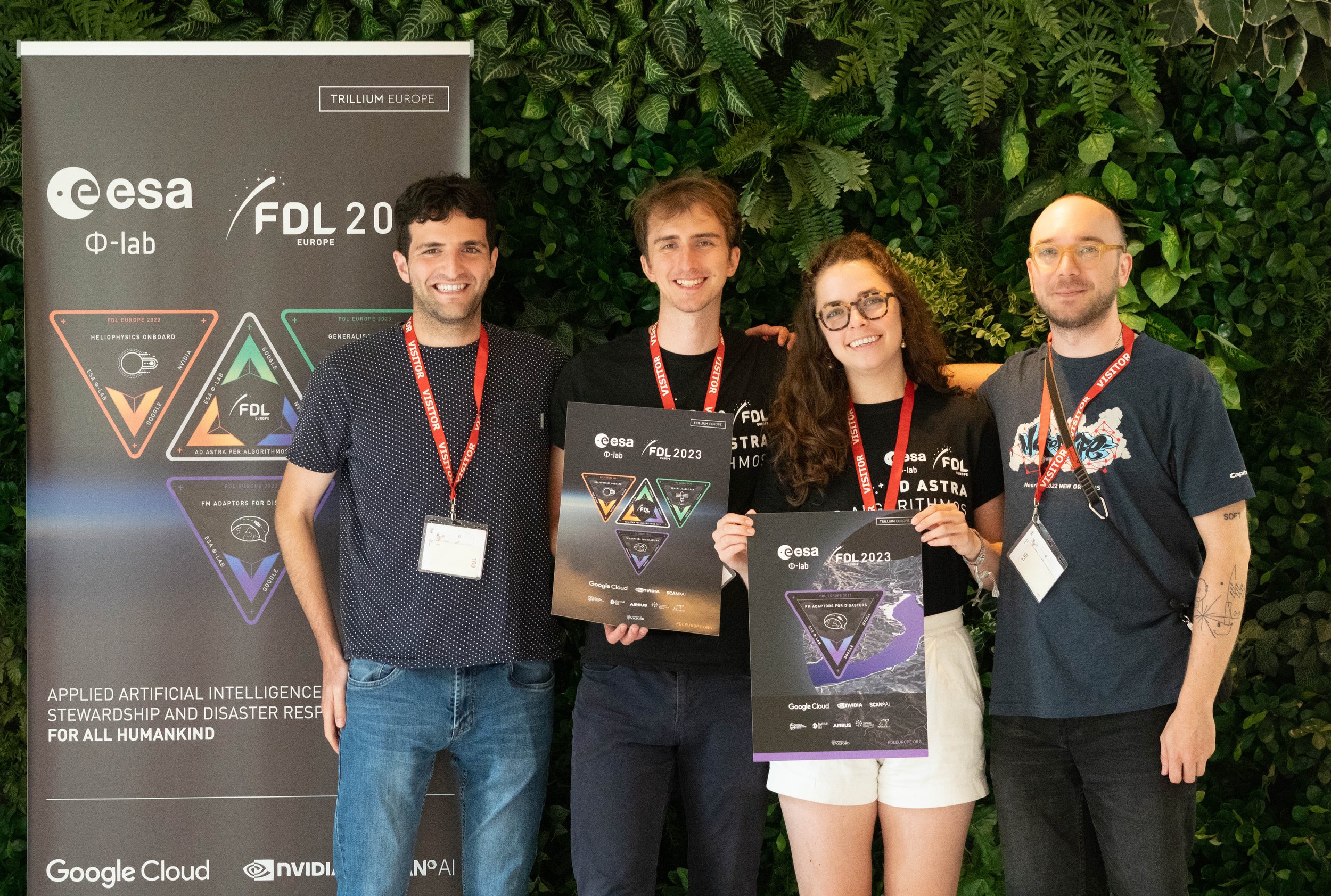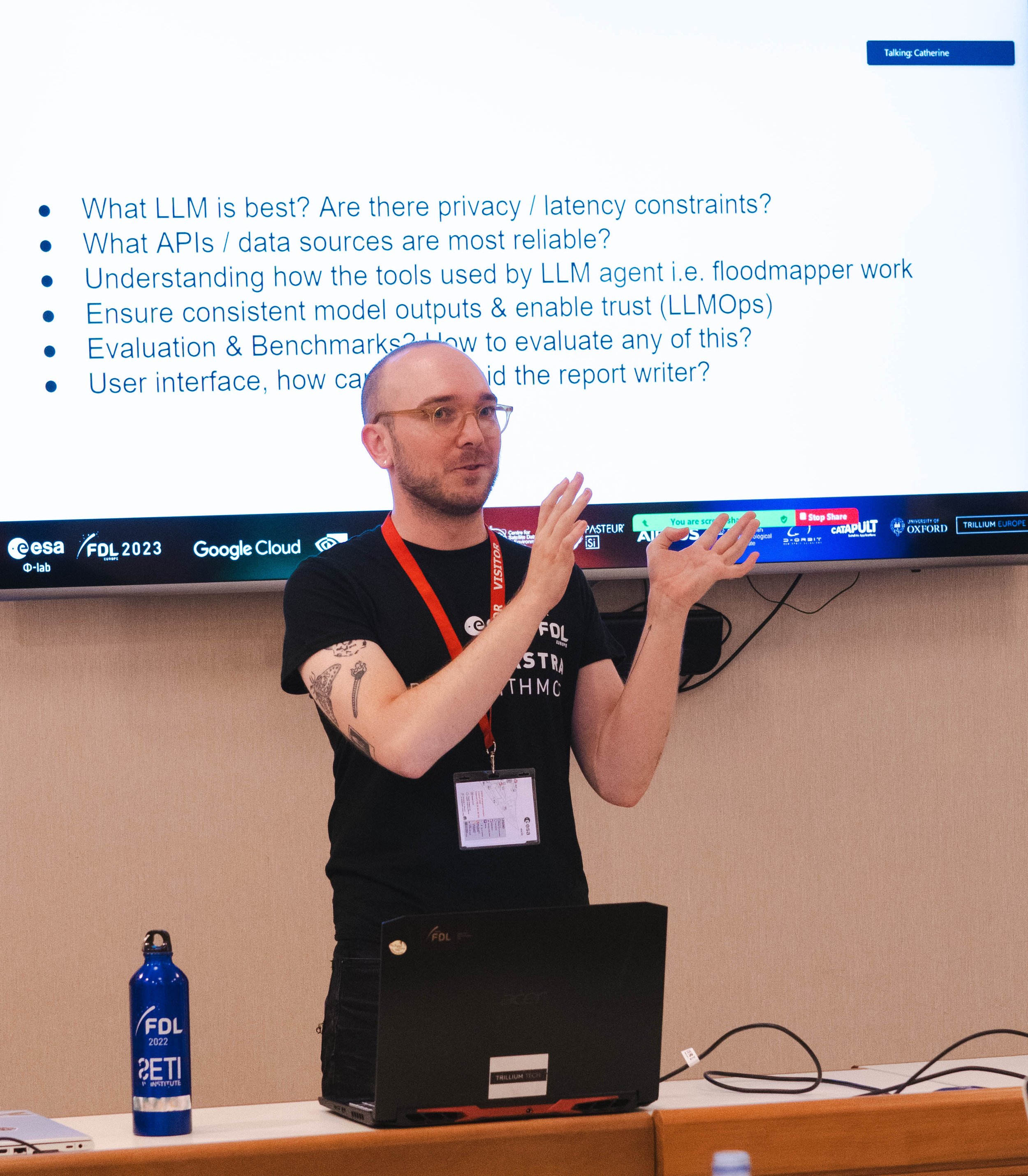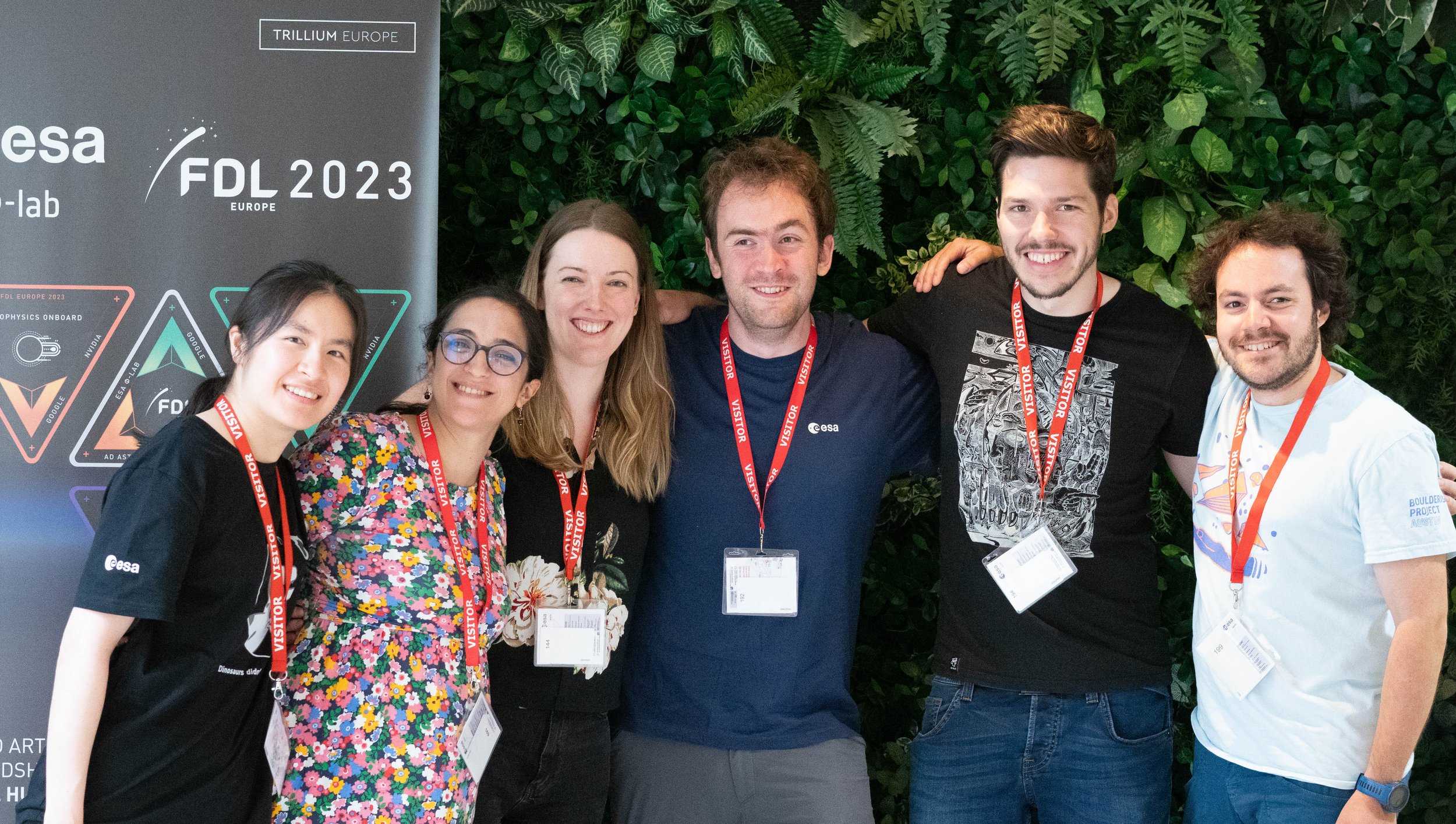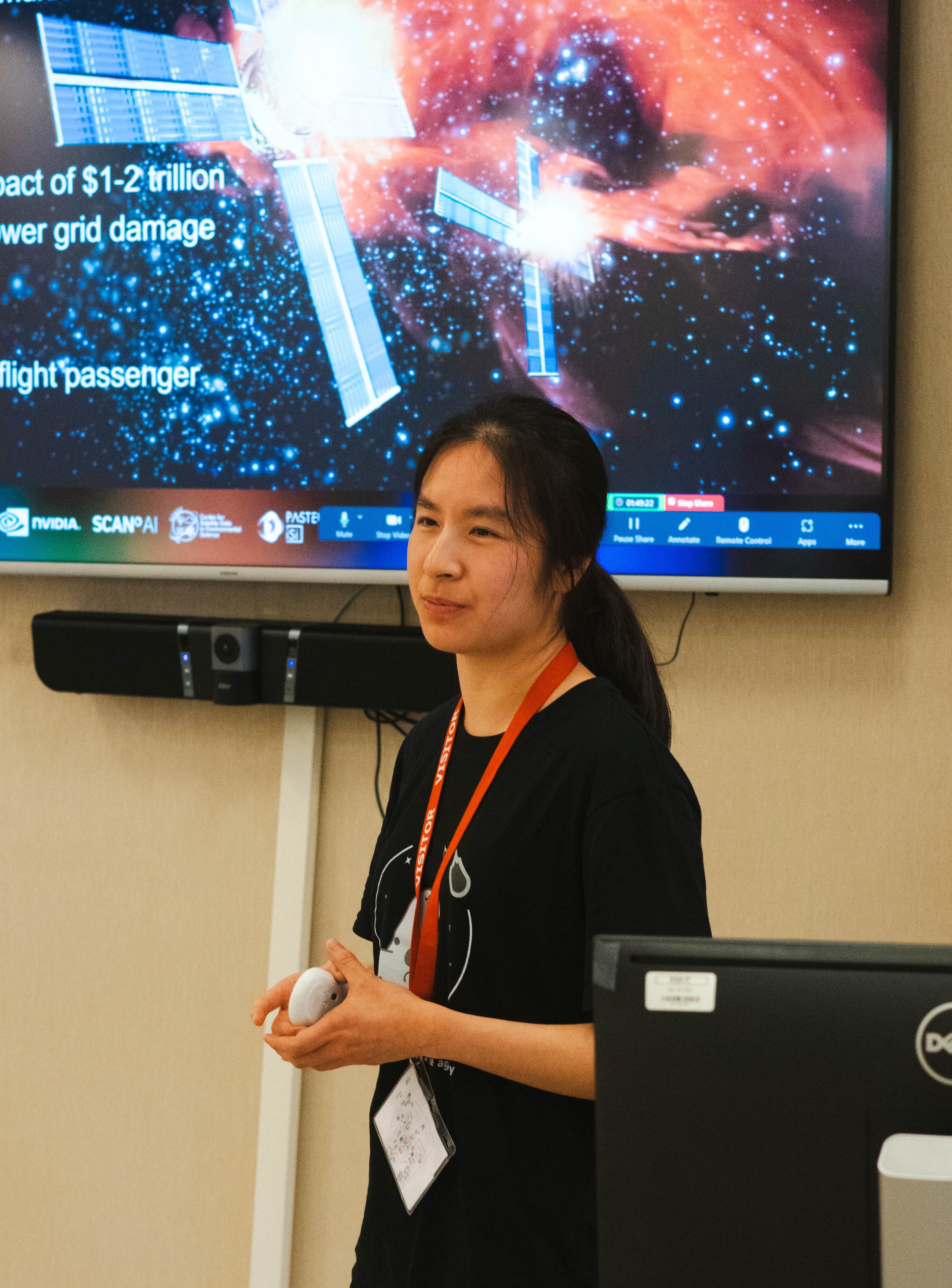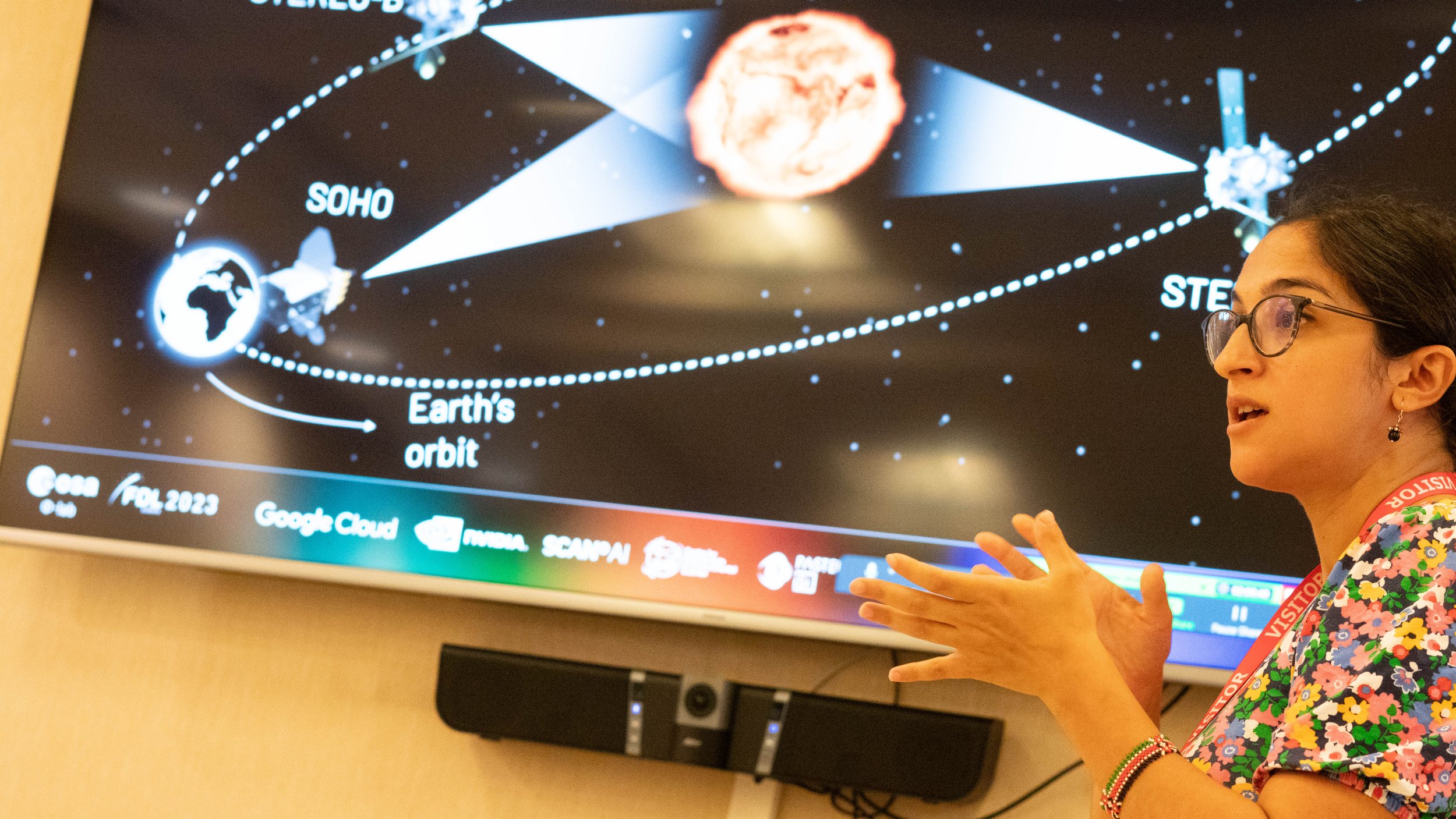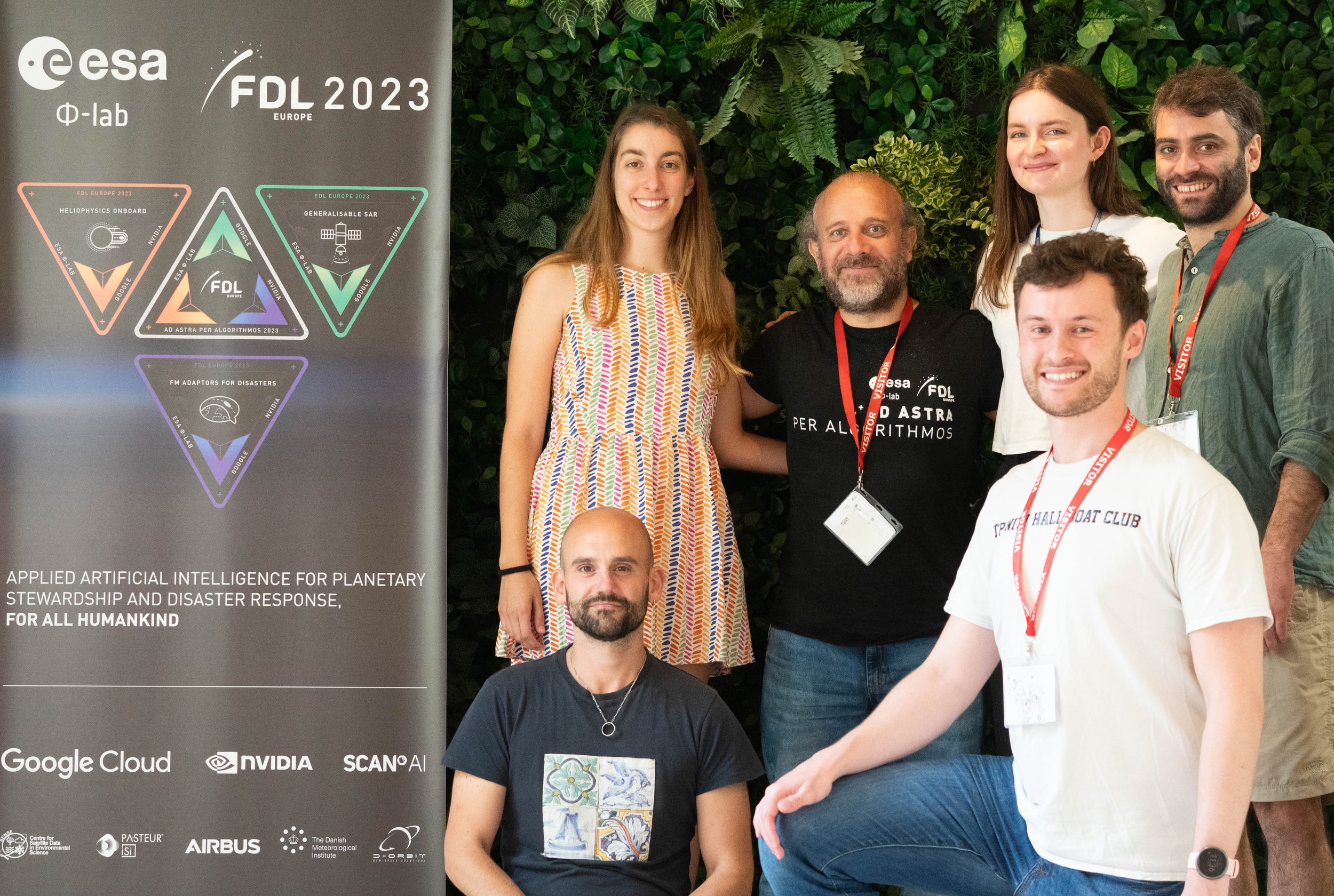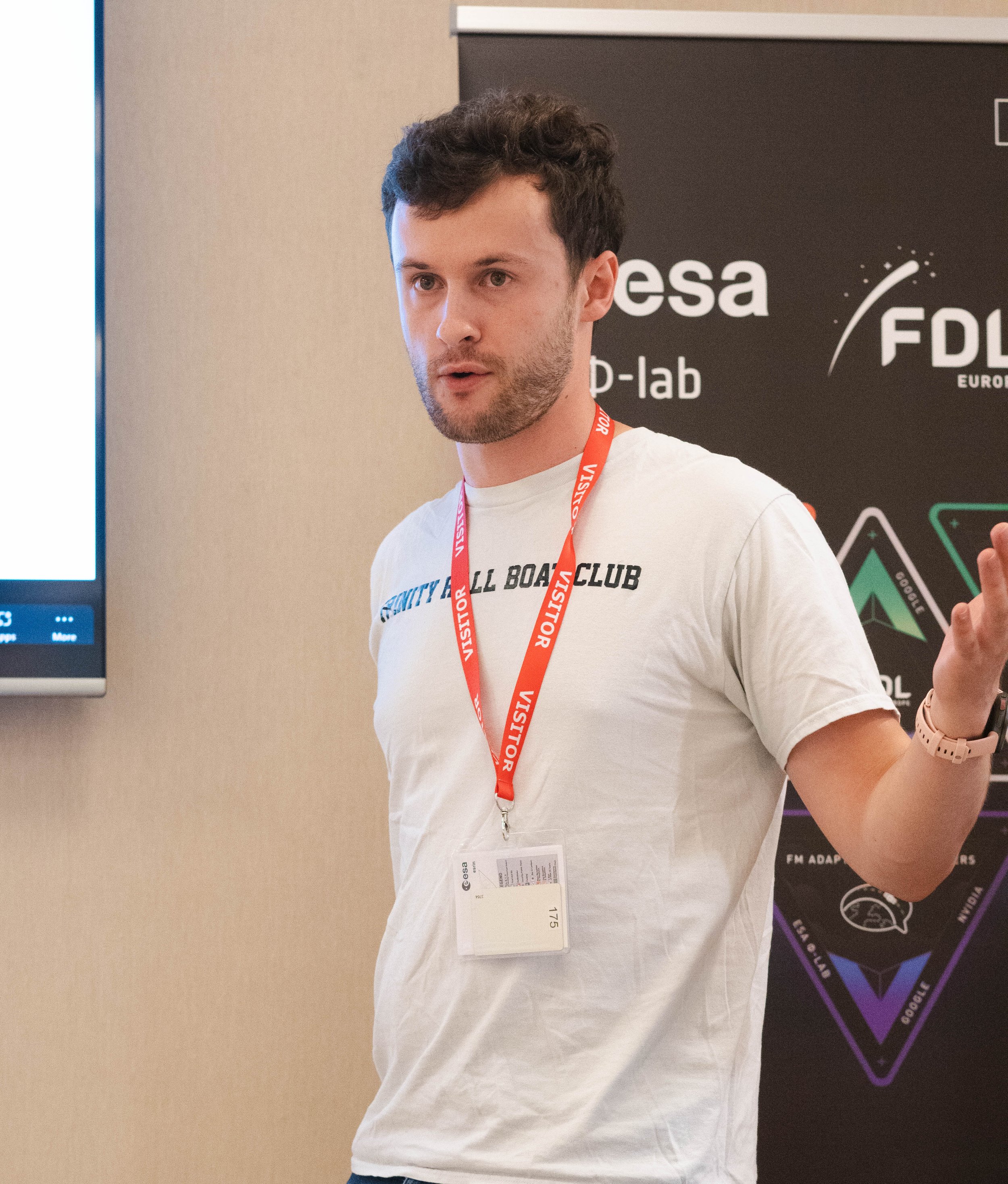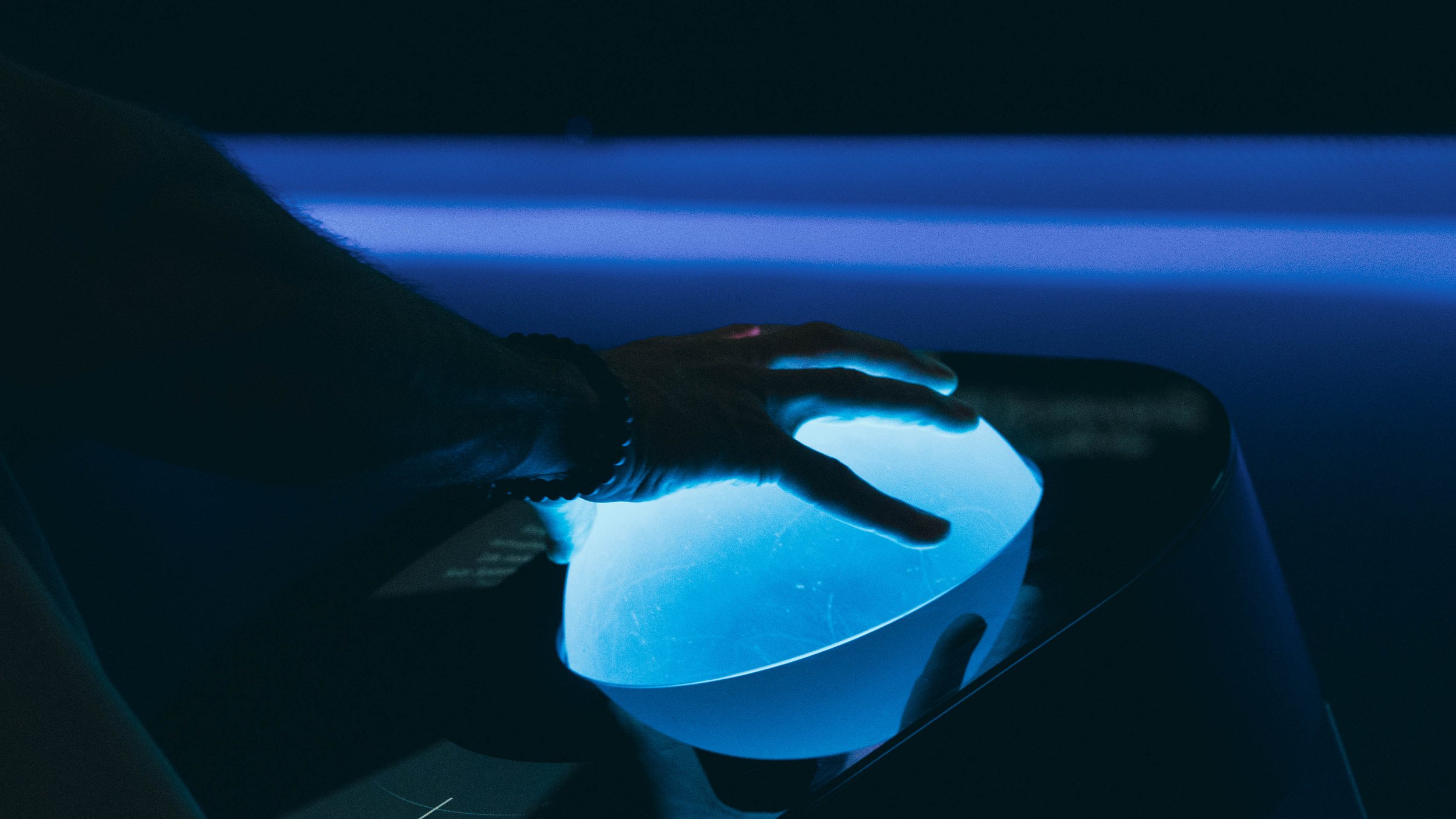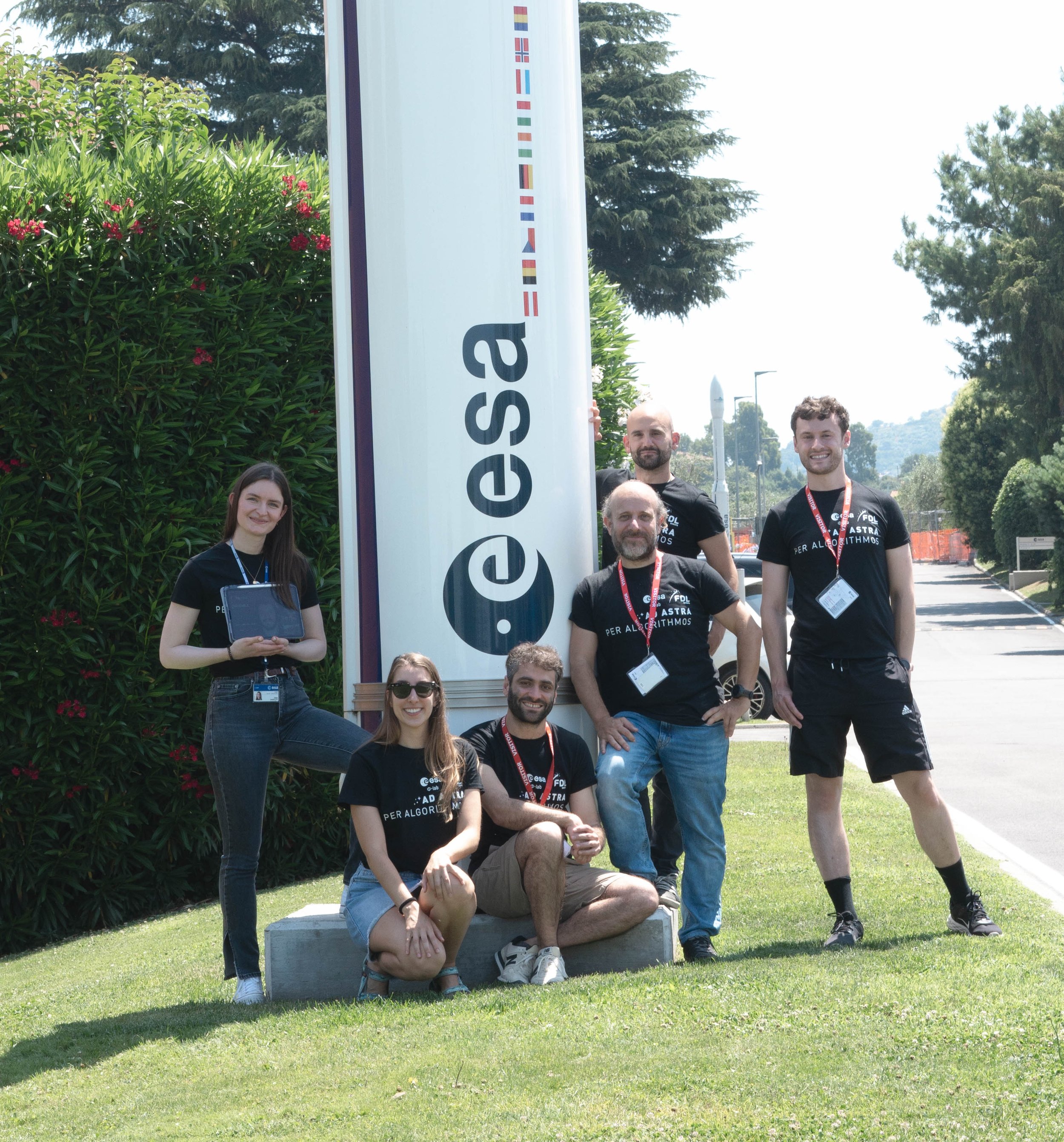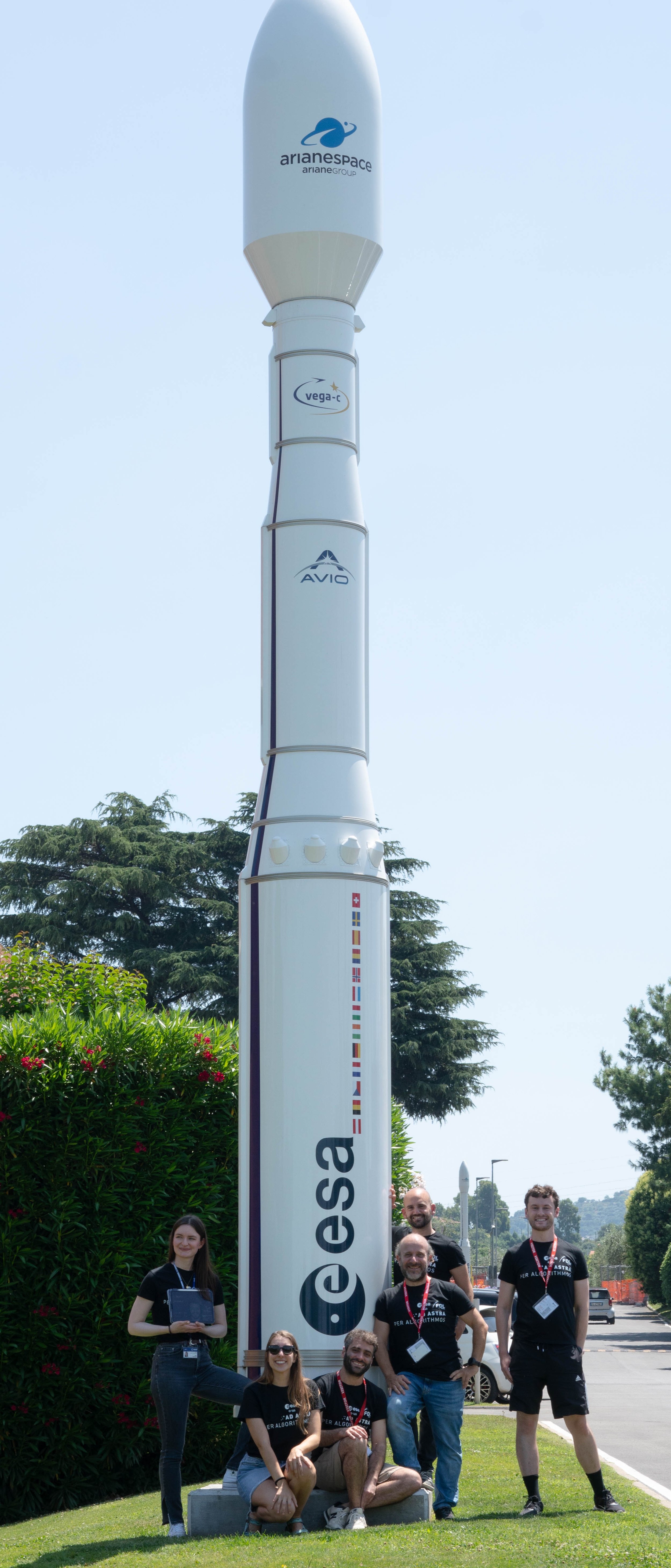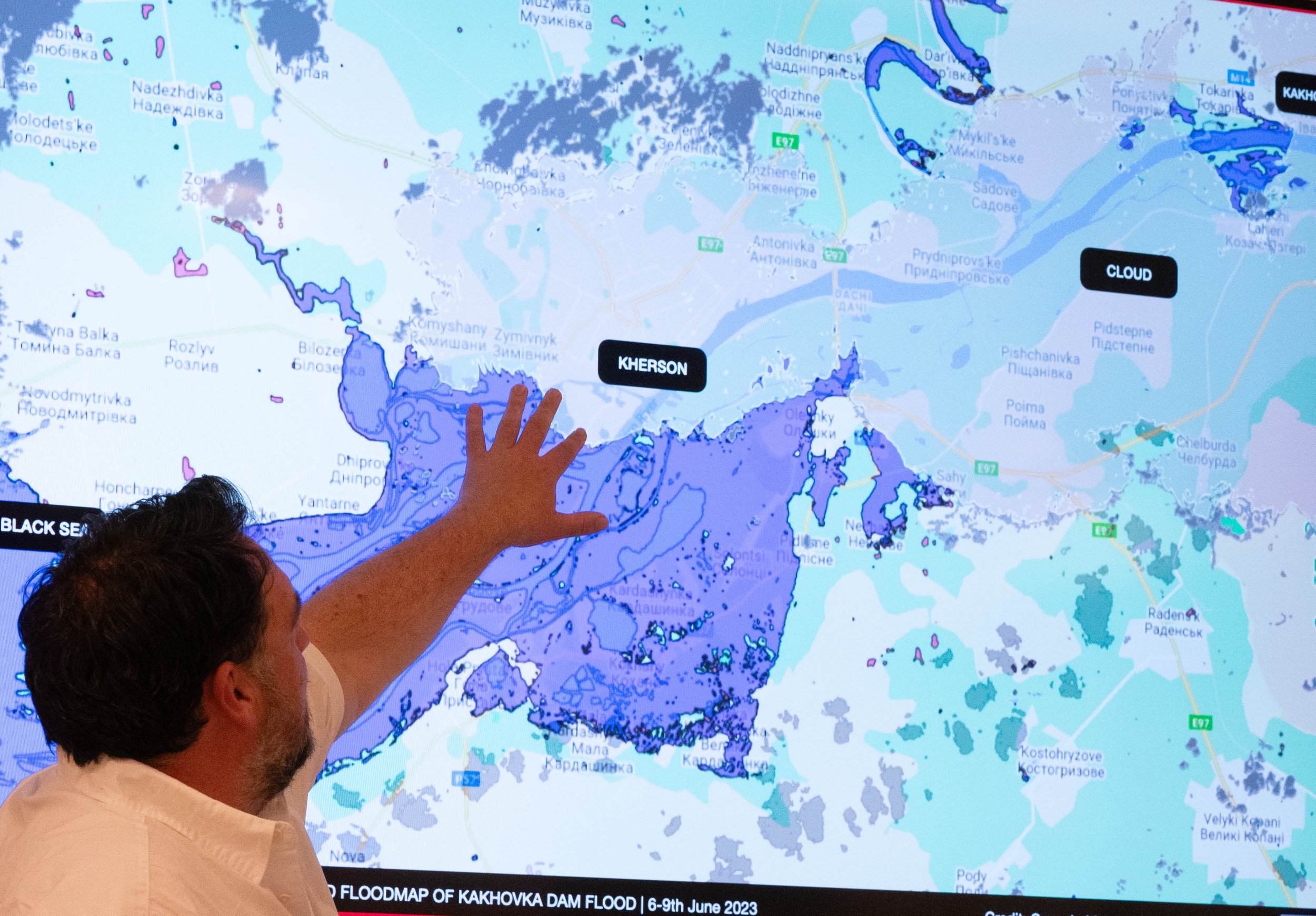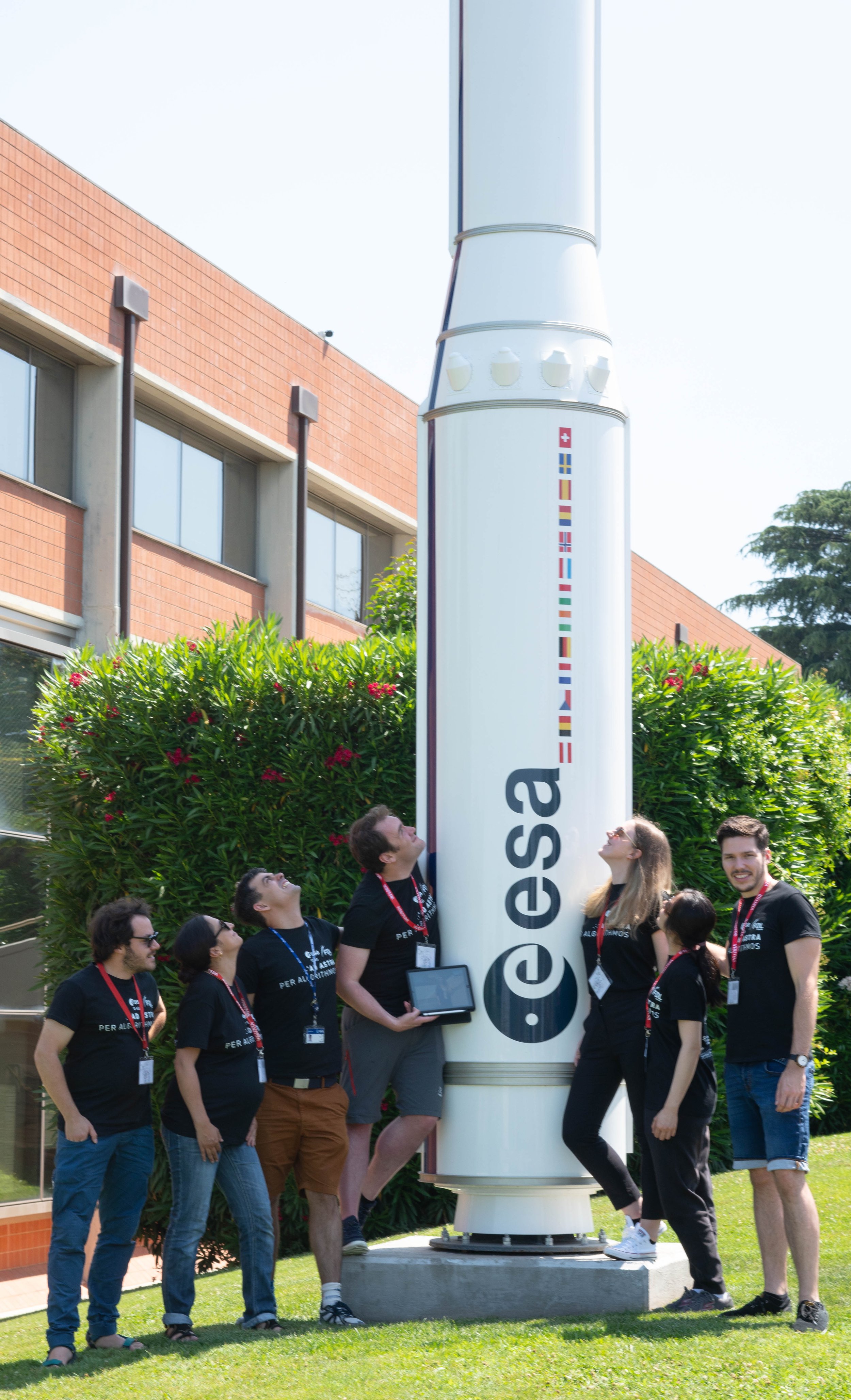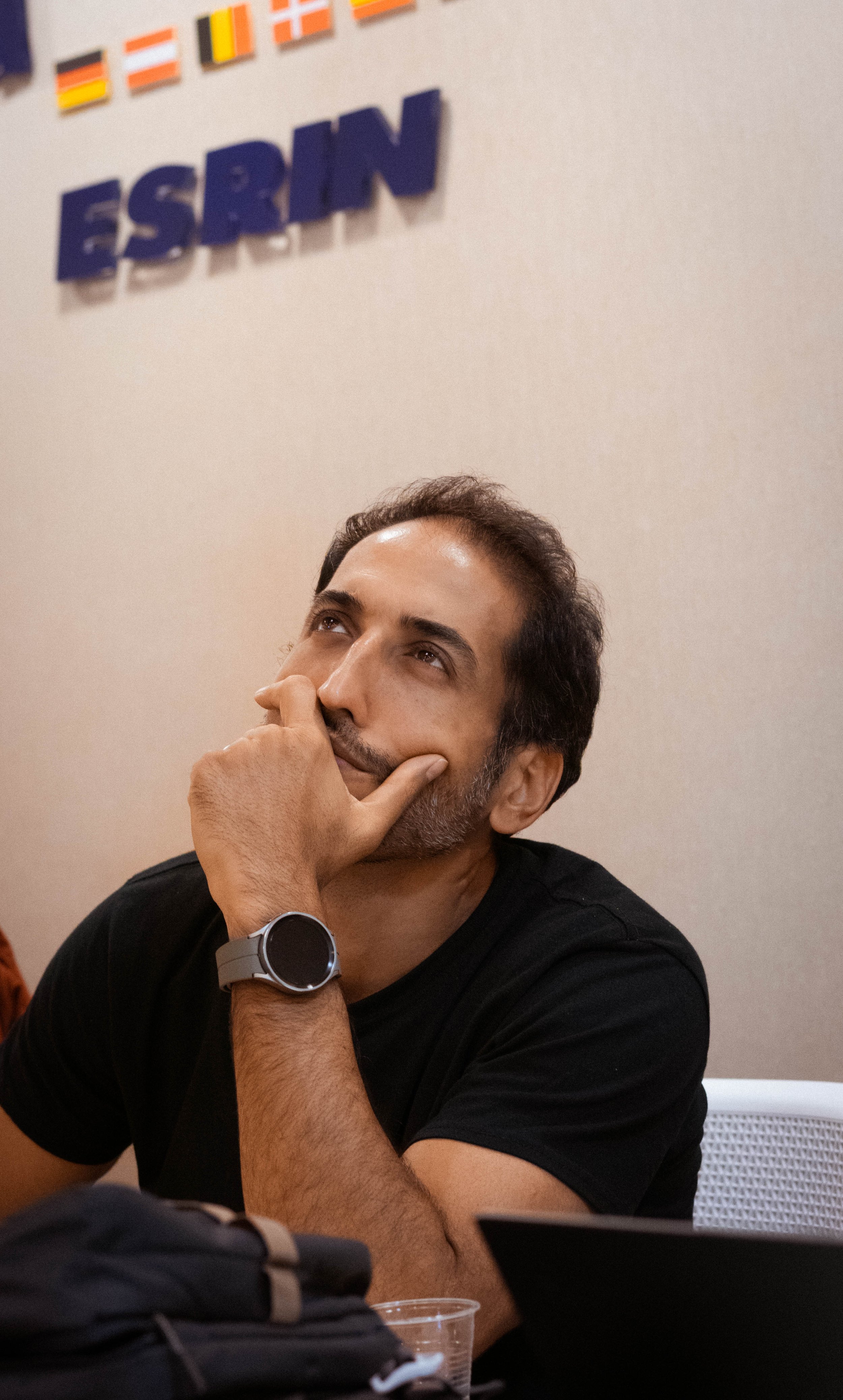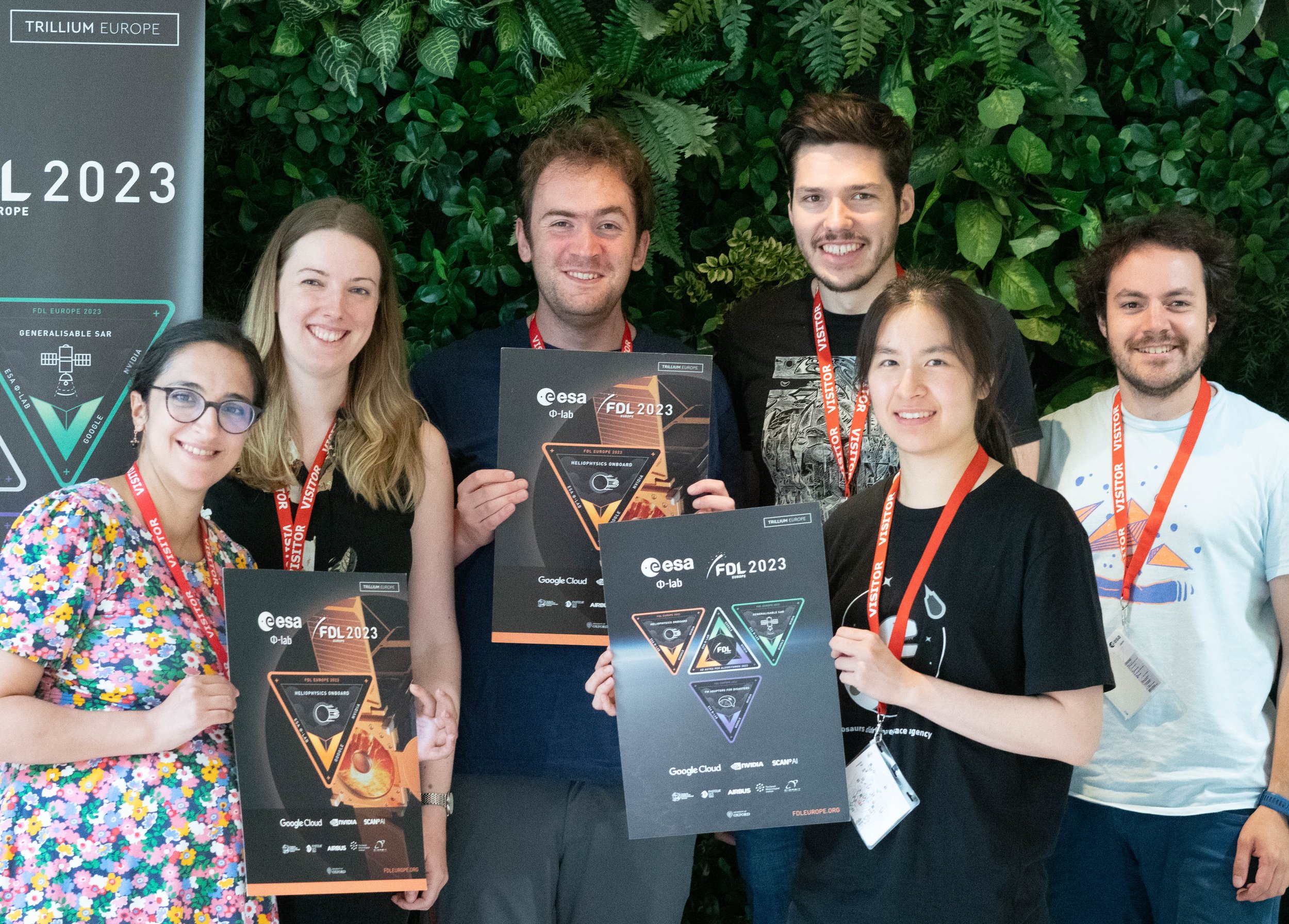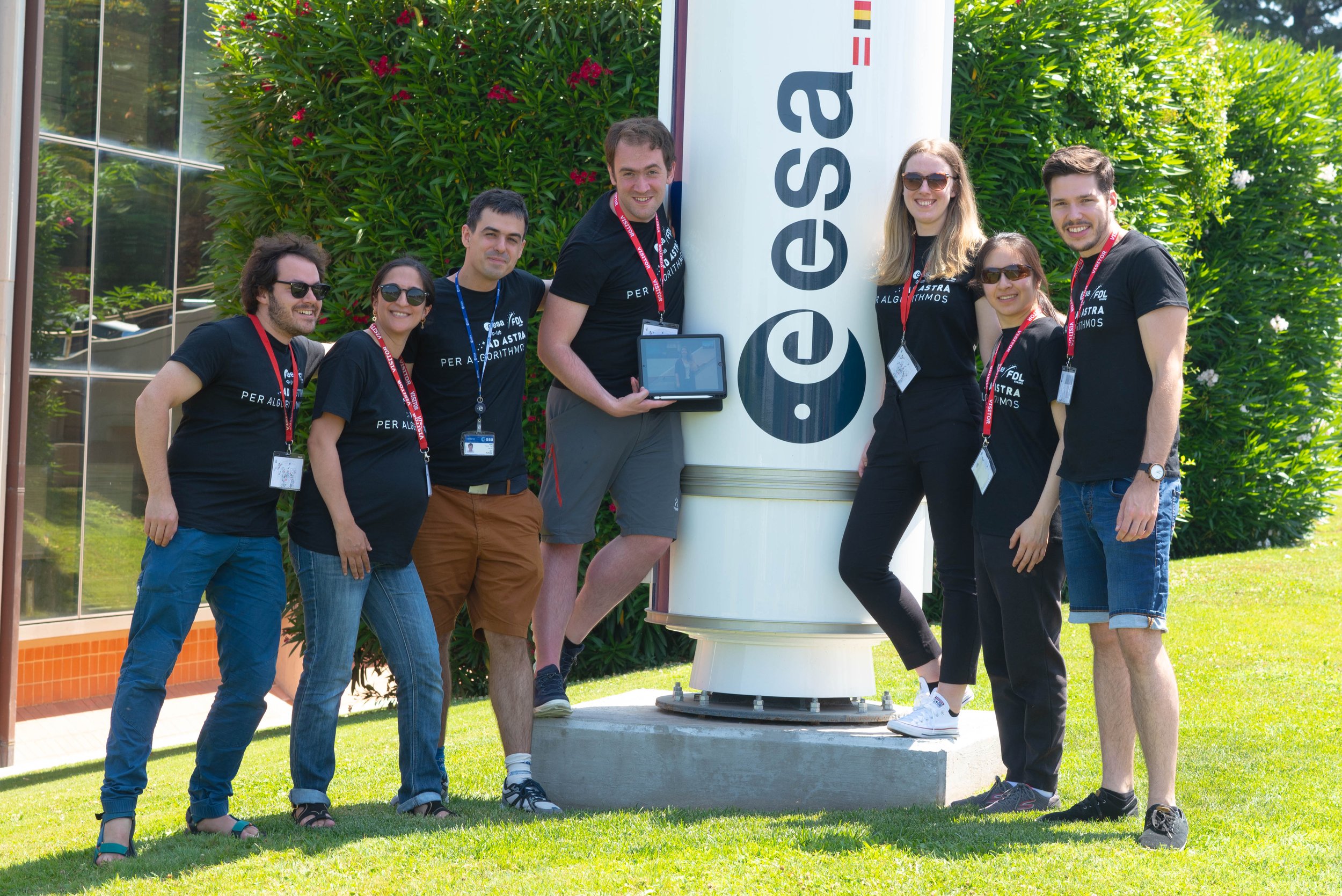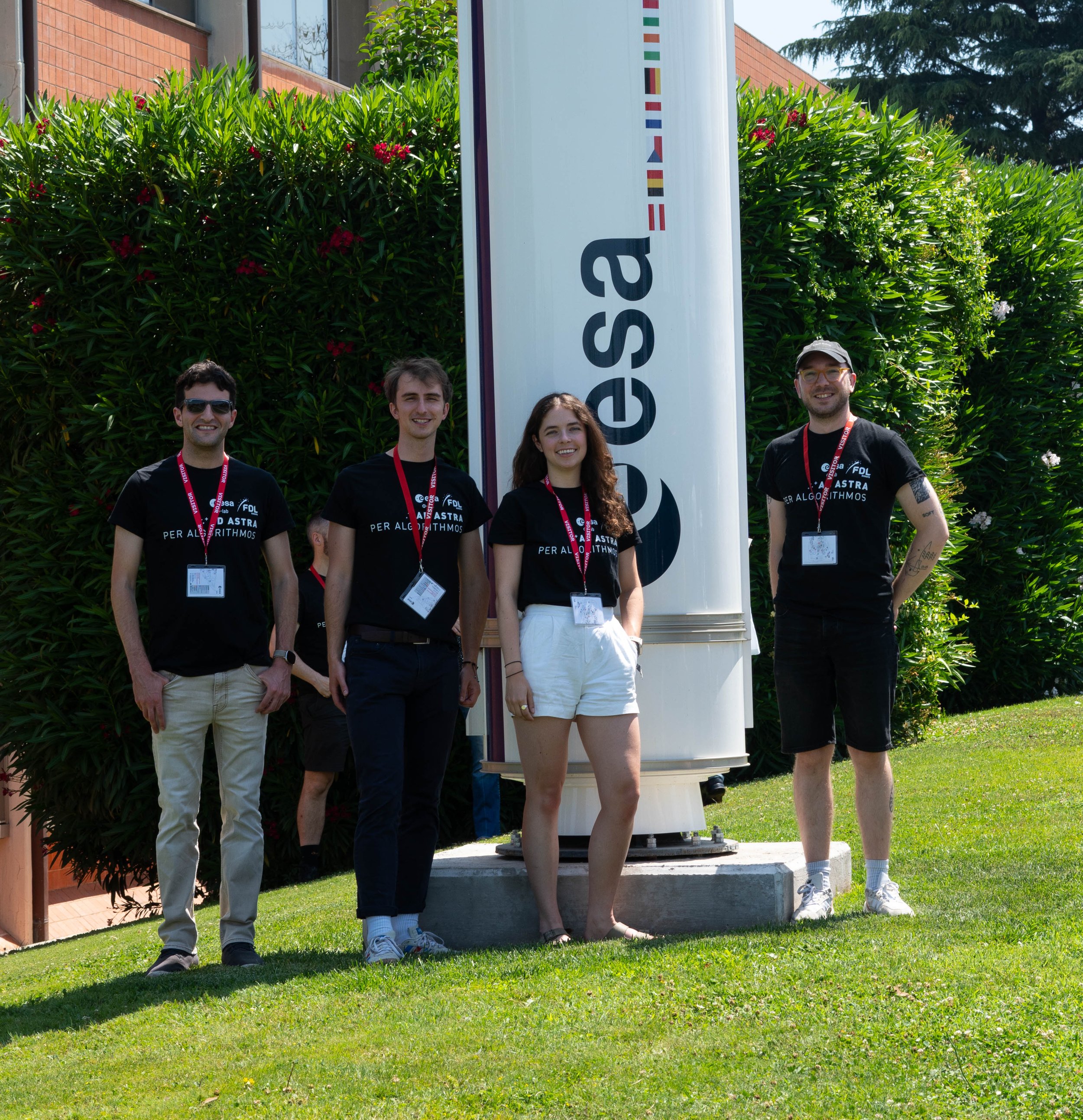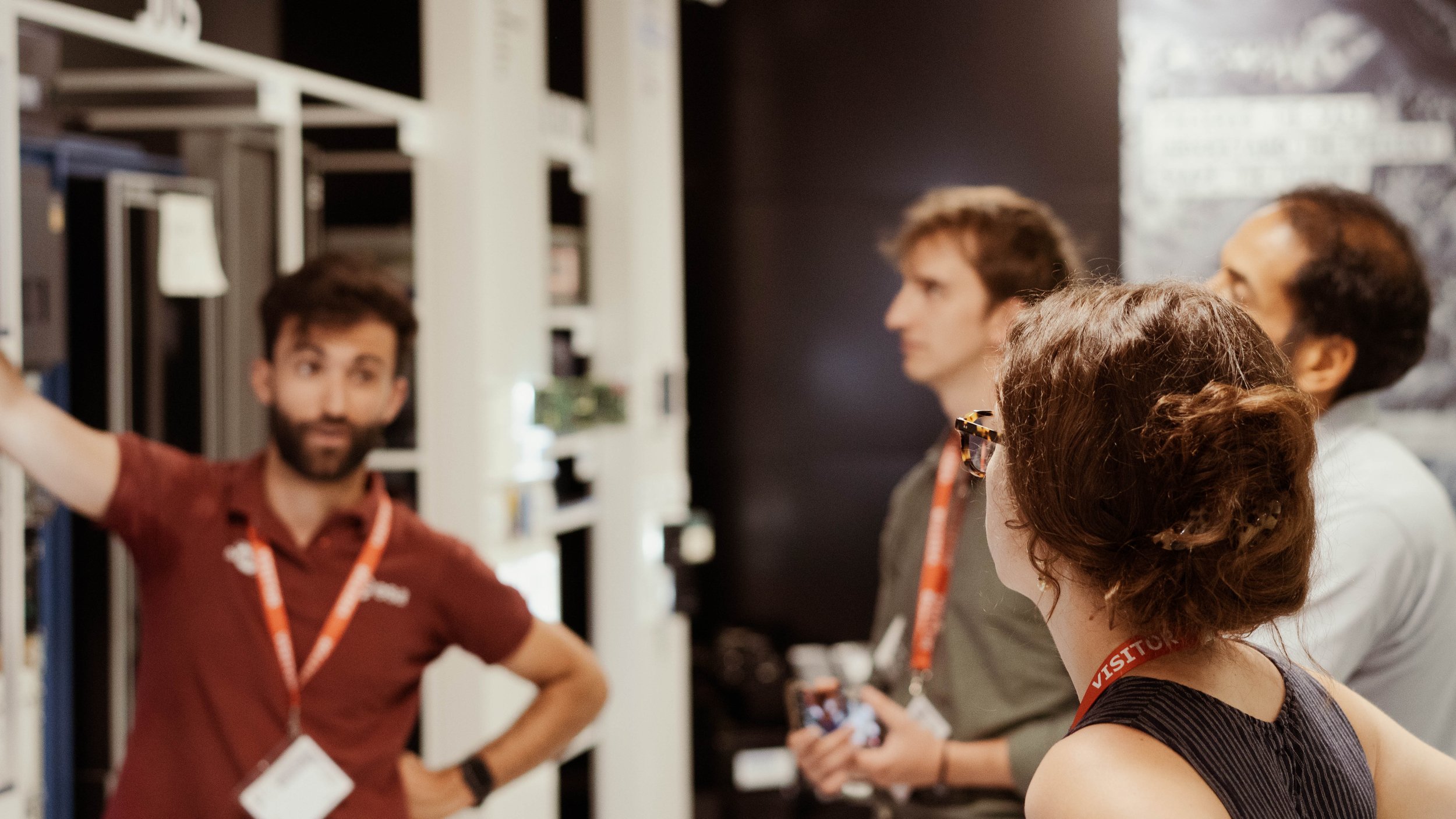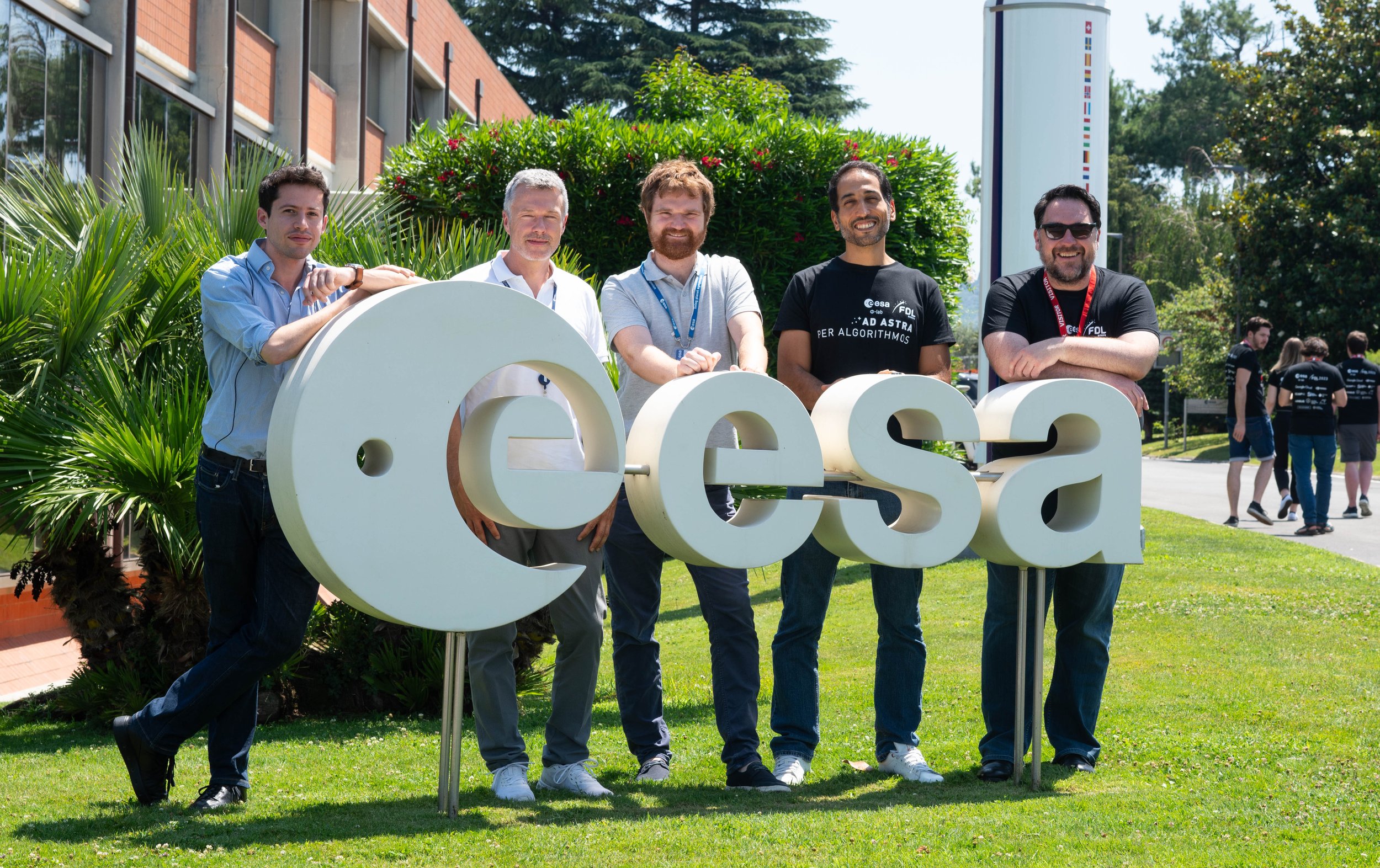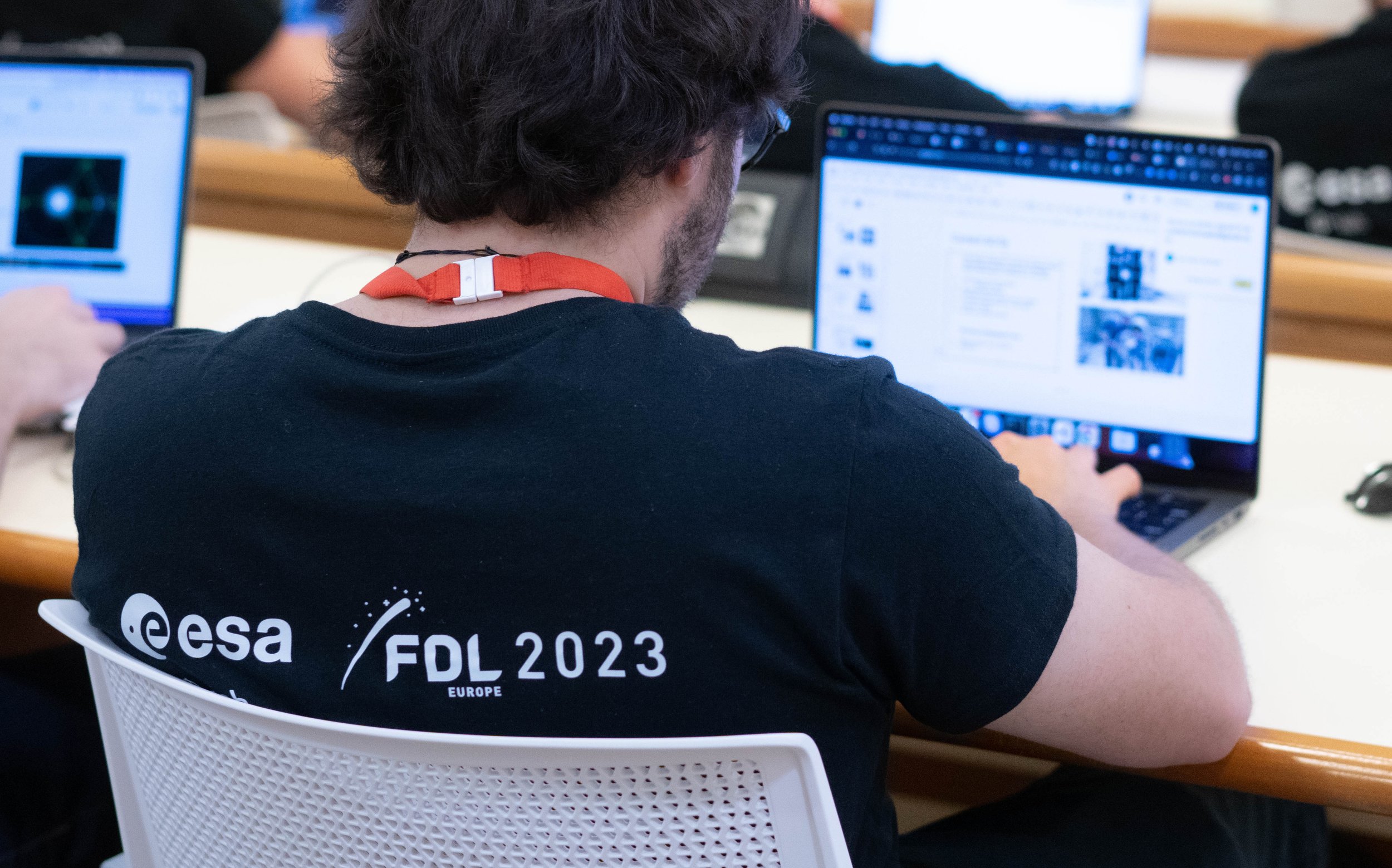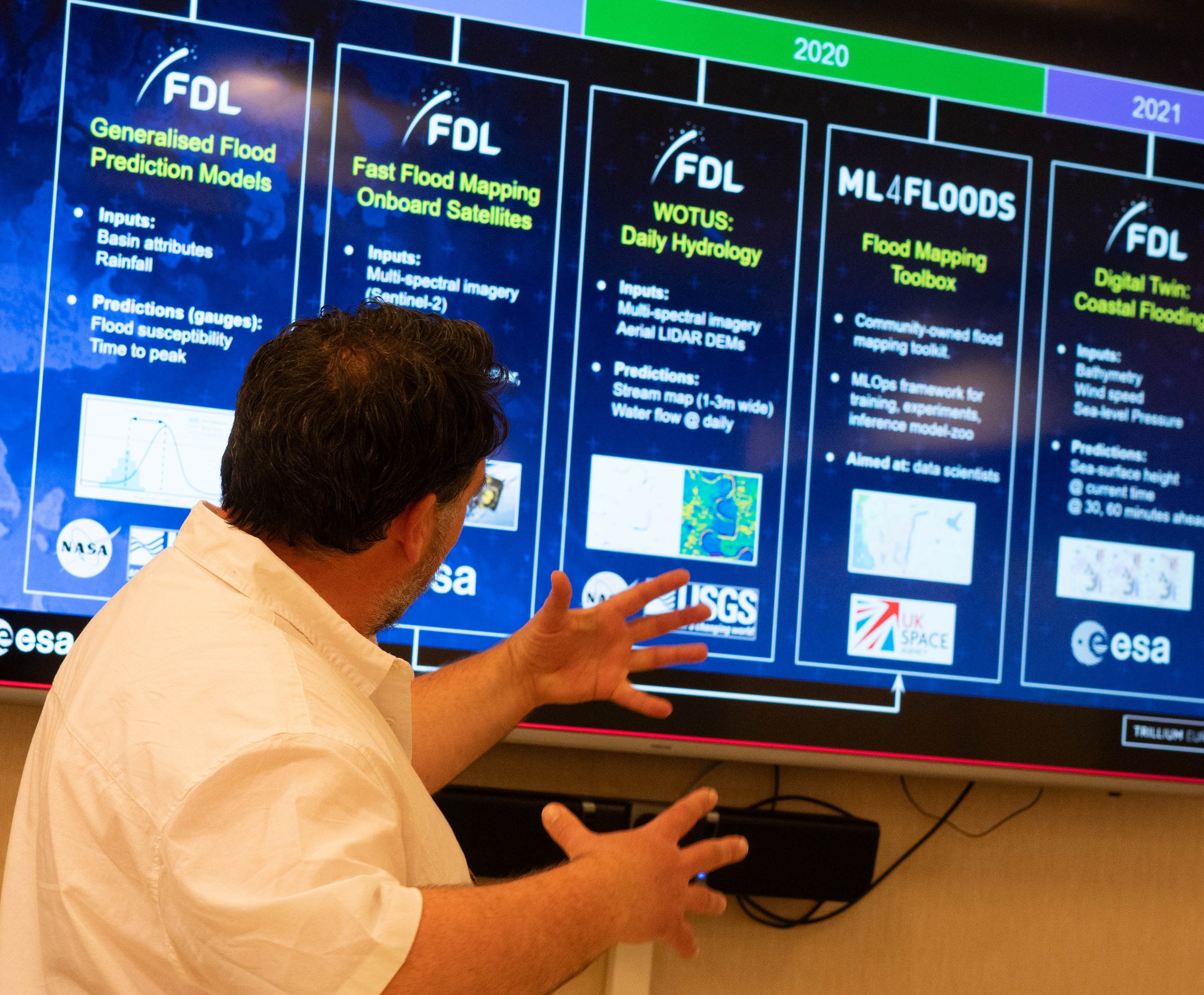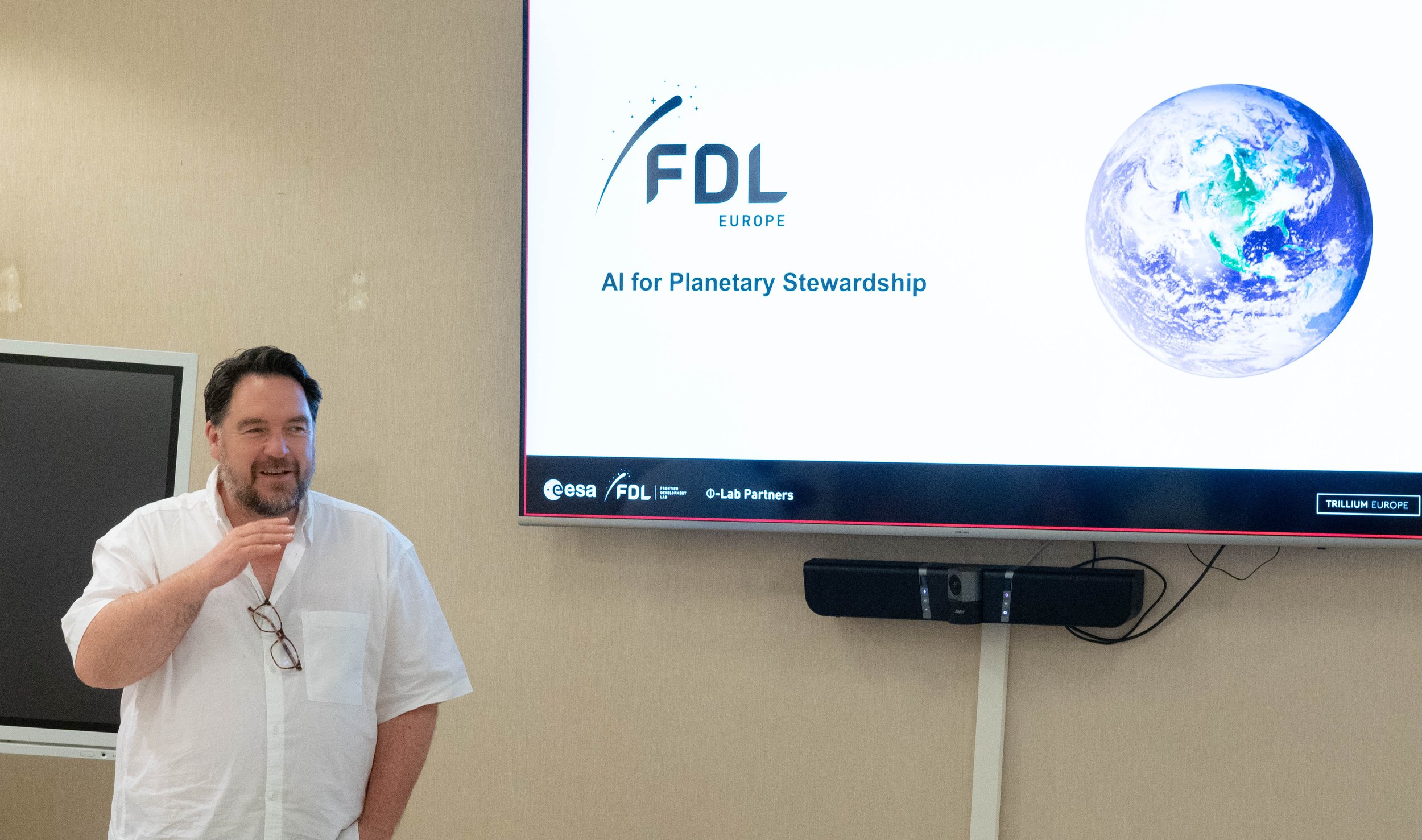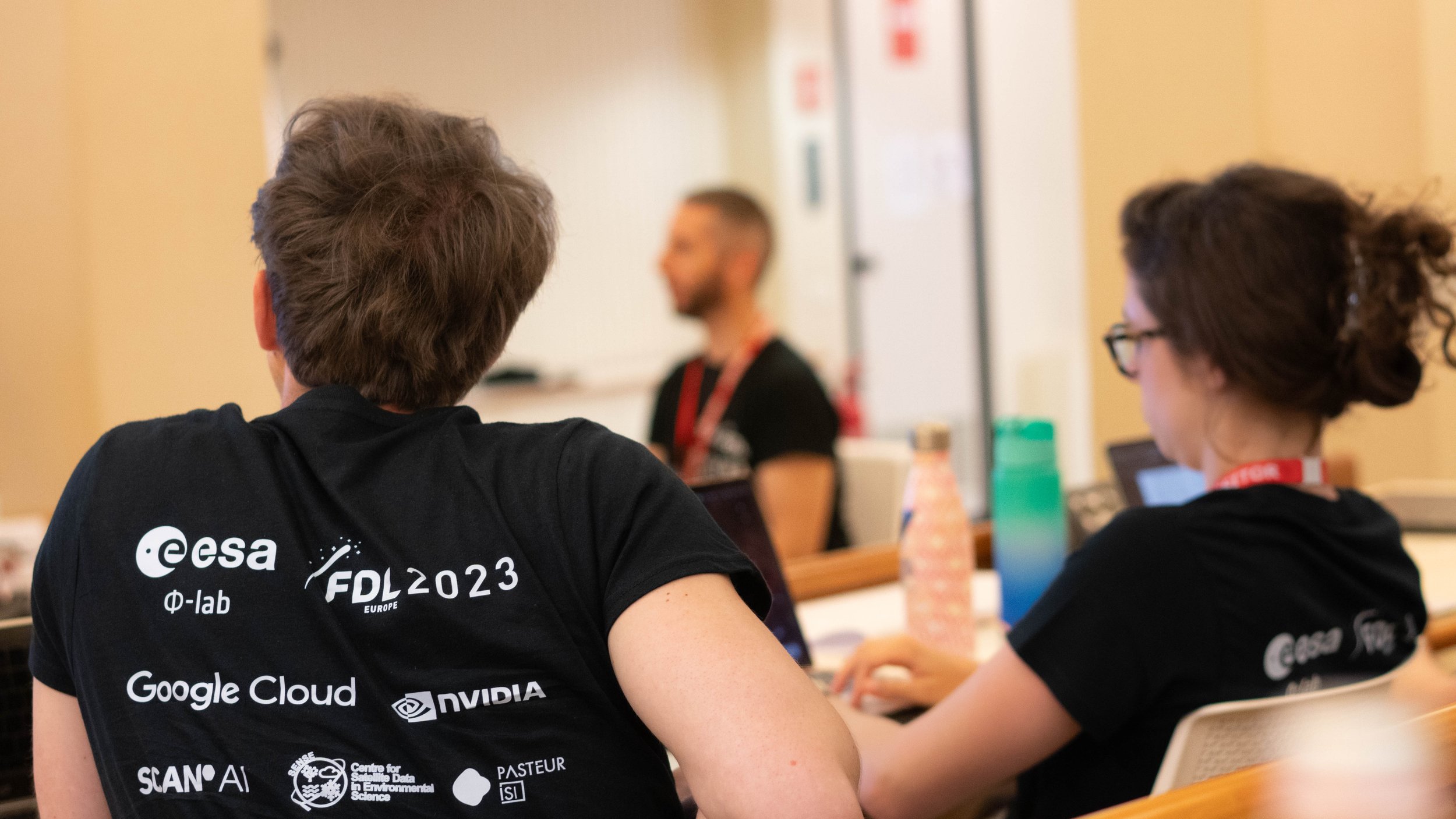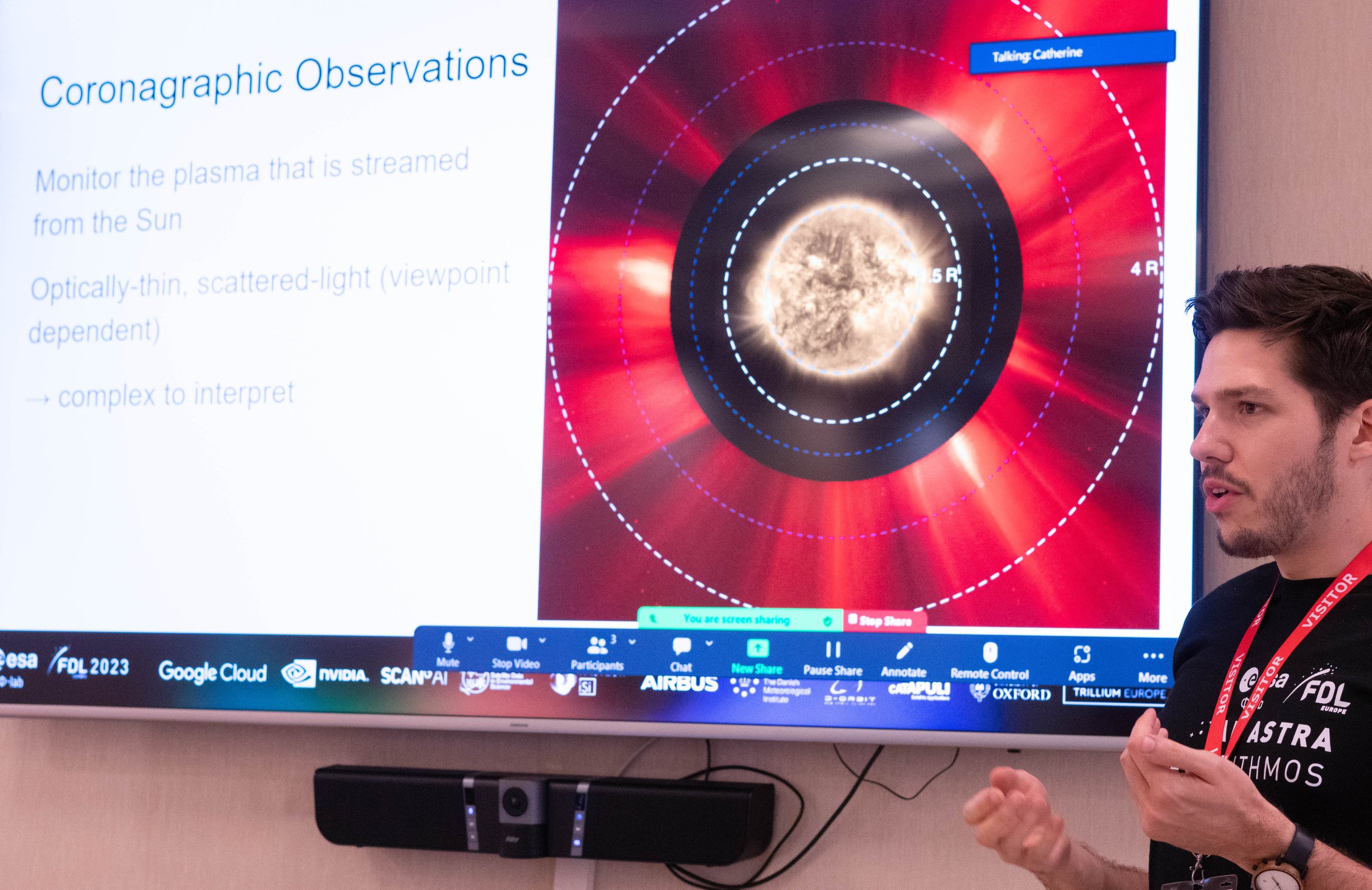
applications
Researcher applications are now CLOSED
Please check the dedicated FAQ section below for more information. Make sure to follow FDL Europe’s Linkedin and Twitter or subscribe here to keep informed on any updates, including the specific challenge areas which will be made available in the coming weeks!
Please email team@trillium.tech with any questions.
FDL Europe 2024 Information Session
Thank you for joining the Information Session! Please find the FDL Europe 2023 Alumni talks below and the updated FAQ section below.
Embark on an intellectual journey with FDL Europe, where the drive of innovation meets academic excellence and a vibrant community. Read more in our brochure:
WHY APPLY?
Be part of the team
Interdisciplinary teamwork is at the heart of the FDL Europe philosophy, and our experience has shown that a mix of skill sets creates results far greater than the sum of their individual parts. Working closely during the eight-week research sprints, teams achieve outputs that might otherwise take years.
Our growing international network provides great value for its members, many of whom have continued work on projects they began at FDL Europe.
Researchers have also gone on to join some of the world’s most prestigious technology, Earth Observation companies and academic institutions in a variety of roles. FDL Europe projects have been featured in peer-reviewed journals, conference presentations, posters and numerous news features.
Build best practices
Best practices in artificial intelligence are still emerging, and FDL Europe is at the forefront of developing effective workflows for AI development in the space sector. Our team-focused approach enables an expertise chain that can tackle problem definition, data source aggregation, workflow composition, algorithm development, creation of inference models and deployment in an efficient manner. We are conscious that teaching machines to learn is different from traditional software development and this requires a new approach.
Unlock powerful partnership opportunities
FDL Europe has developed strong relationships with world-class AI researchers and leaders in technology. Their support helps us overcome hurdles using solutions that would usually be beyond the easy reach of researchers, such as state-of-the-art hardware to facilitate rapid iteration and a wealth of experience and expertise in building robust AI workflows.
Help humanity
FDL Europe brings brilliant minds to big questions - such as ‘can we democratise ML for faster, more effective preparation for and response to natural disasters and extreme weather events?’ - and gives researchers a chance to develop solutions with the potential to advance science, inform debate and save lives. From asteroid characterisation to early-warning systems for natural disasters, there is huge potential to make a difference with FDL Europe.
Ask FDL Europe Alumni:
What is FDL EUROPE, and why should you apply?
Ioanna Bouri, FDL Europe 2022 Alumnus
Anna Jungbluth, FDL Europe 2019-2022 Alumnus&Faculty
Raúl Ramos, FDL Europe 2022 Faculty
FAQS
What sort of applicants are we looking for?
The participants in FDL Europe are PhD or postdoctoral level researchers in AI, data science and/or space sciences. Successful candidates are matched to form small multidisciplinary, complementary teams for the research sprints. FDL Europe carefully curates teams from all the researchers that make it through to the final selection pool, taking into account subject expertise, technical capacity and ability to work across disciplines.
When do applications open and close?
Applications open on November 27th, 2023 and close on April 19th, 2023. There is the possibility of an additional call for applicants if we need specific domain or subject specialists to match our challenge questions, but this is not guaranteed, so get your application in before the deadline!
I’m not sure if I meet all the criteria, should I still apply?
We are looking for a diverse group of individuals, so we strongly encourage you to apply even if you’re not sure that you meet our criteria. Teamwork skills are just as important as anything else. That said, we expect to have many more applicants than available places, so we will prioritise applicants in PhD or postdoctoral programs.
Can faculty applications come from non ex-FDL Europe researchers?
Yes! Please apply promptly as faculty members are chosen before researchers.
Do the results for faculty and researcher applications come back at the same time?
Faculty selection happens earlier as faculty members play a role in selecting research teams.
Can I apply as both an AI/data science and space science researcher?
Over time, we have seen a shift as more applicants bring both ML and space science experience to the table. These applicants do tend to lean in one direction, however, when it comes to specialty. We ask all applicants to align themselves with one of four categories:
-ML/AI/ Data Scientist
-Hybrid - Specialty ML Lead
-Energy / Space (Domain) Science Scientist
-Hybrid - Specialty Energy / Space (Domain) Scientist Lead
Your choice will not affect your application positively or negatively. A frank self-assessment of your skills is important. We select for potential and curiosity as well as skill set, and if there is a lack of domain experts, researchers with experience in related fields or technologies will be considered.
When can I expect an answer regarding my application?
Researchers will be informed about the outcome of the application process around May.
Once I apply, what is the timeframe for receiving an interview invitation?
We interview applications as they come in. Because of this, we encourage you to not delay application.
What are the dates of the FDL Europe research sprint?
The sprint is expected to take place over eight weeks from mid-June to mid-August. We will require your full-time commitment throughout the duration of the research sprint.
Where does the research sprint take place? Will FDL Europe be in-person or virtual?
FDL Europe is a virtual program, with the possibility of an in-person week to kick off the sprint in June. We have found great results delivering research and a strong sense of culture in a hybrid work setting.
What happens during the research sprint?
Bootcamp week (week 1) aims to introduce AI methods and basics to the space science team members and vice versa. This is a rapid learning week where the core aspects of both fields are covered, ensuring everyone has a firm grounding for the following weeks. Then, teams work together to research their challenge area and formulate solutions for the challenge question. The second half of the sprint is used for prototyping, testing and perfecting solutions and getting ready for a final showcase. At the end of the research sprint, teams present their work to leading scientists, researchers and industry experts from ESA and our partners.
Can I apply to FDL Europe if I’m a non-European citizen? Does geographic location matter?
FDL Europe is pleased to be able to welcome applications from researchers from around the world. To take part in the FDL Europe sprint, applicants should either be European citizens or be eligible for the relevant visa to stay in Europe for at least eight weeks. We do try to co-locate teams to make working together easier, but this isn't a deciding factor. You will be selected based on your research and expertise, not your location.
Do I need to put my own research on hold?
During the research sprint, teams work intensively on their projects and are expected to be present and active for the full eight weeks. There may also be additional social activities and field trips so be prepared to be kept busy. However, we hope that the work you do during FDL Europe will complement your research - either by providing a deep-dive introduction to emerging AI techniques to take back to your own investigations, or providing an opportunity to work shoulder-to-shoulder with world-class experts from ESA and the private sector.
Researchers from previous FDL Europe programs have commented on the value of getting a fresh perspective and strong relationships and friendships. You can find three FDL Europe alumni’s comments on the program above the FAQ section.
Do I have to pay to take part in FDL Europe?
No. Researchers receive a stipend for the duration of the program as well as complimentary accommodations for any in-person portion of the program.
Is FDL Europe a full time commitment?
Yes. FDL Europe is a full-time commitment and beyond. We know that teams need to work hard over the eight weeks to get the great results we have seen in previous years. We hope that in return, FDL Europe provides a unique opportunity to work with globally recognised leaders in the field and produce career-enhancing work into the future.
Is FDL Europe an accompanied programme?
No. Accommodation is provided for researchers but we have no additional accommodation available for friends and family during in-person portions of the program.
